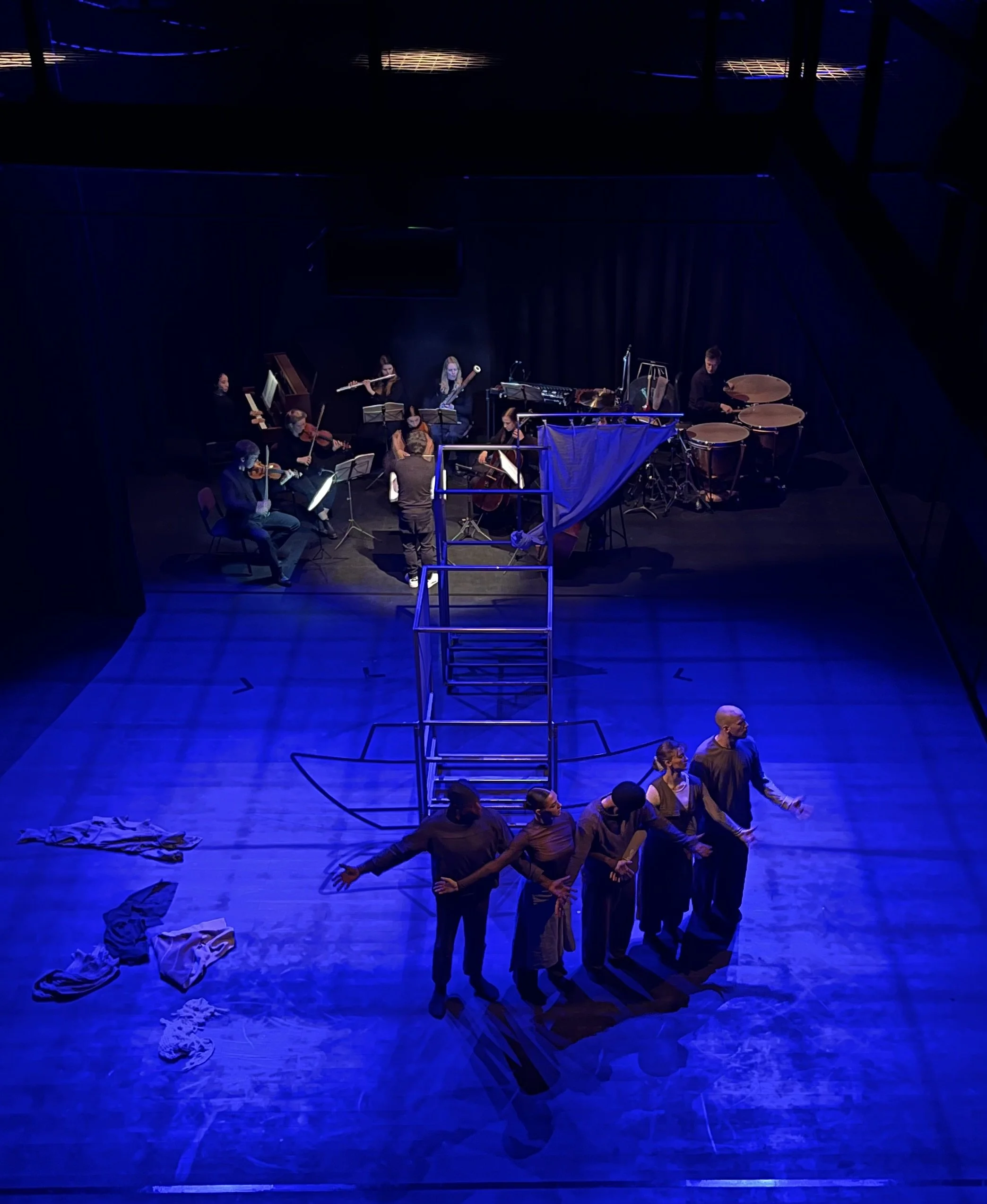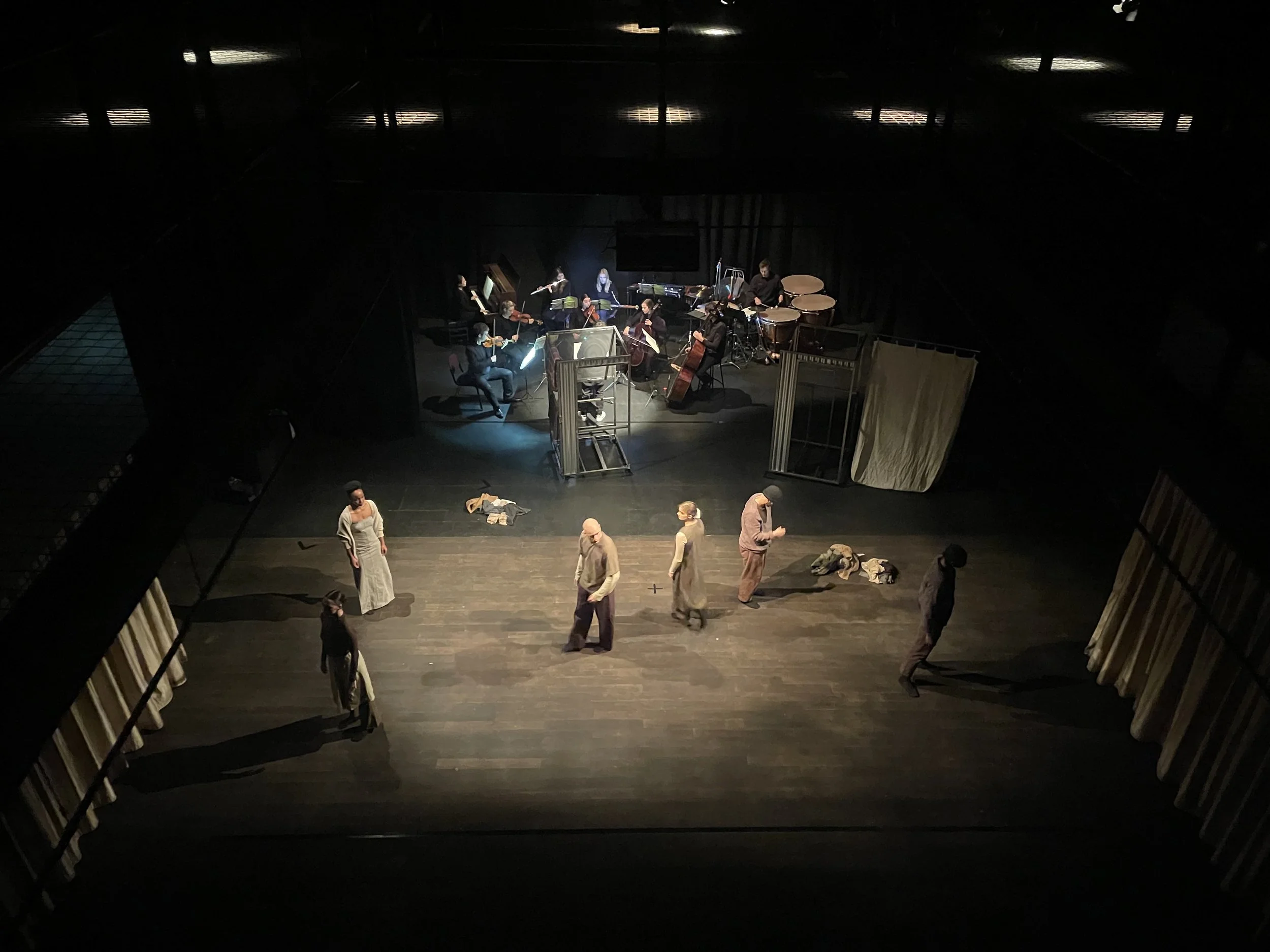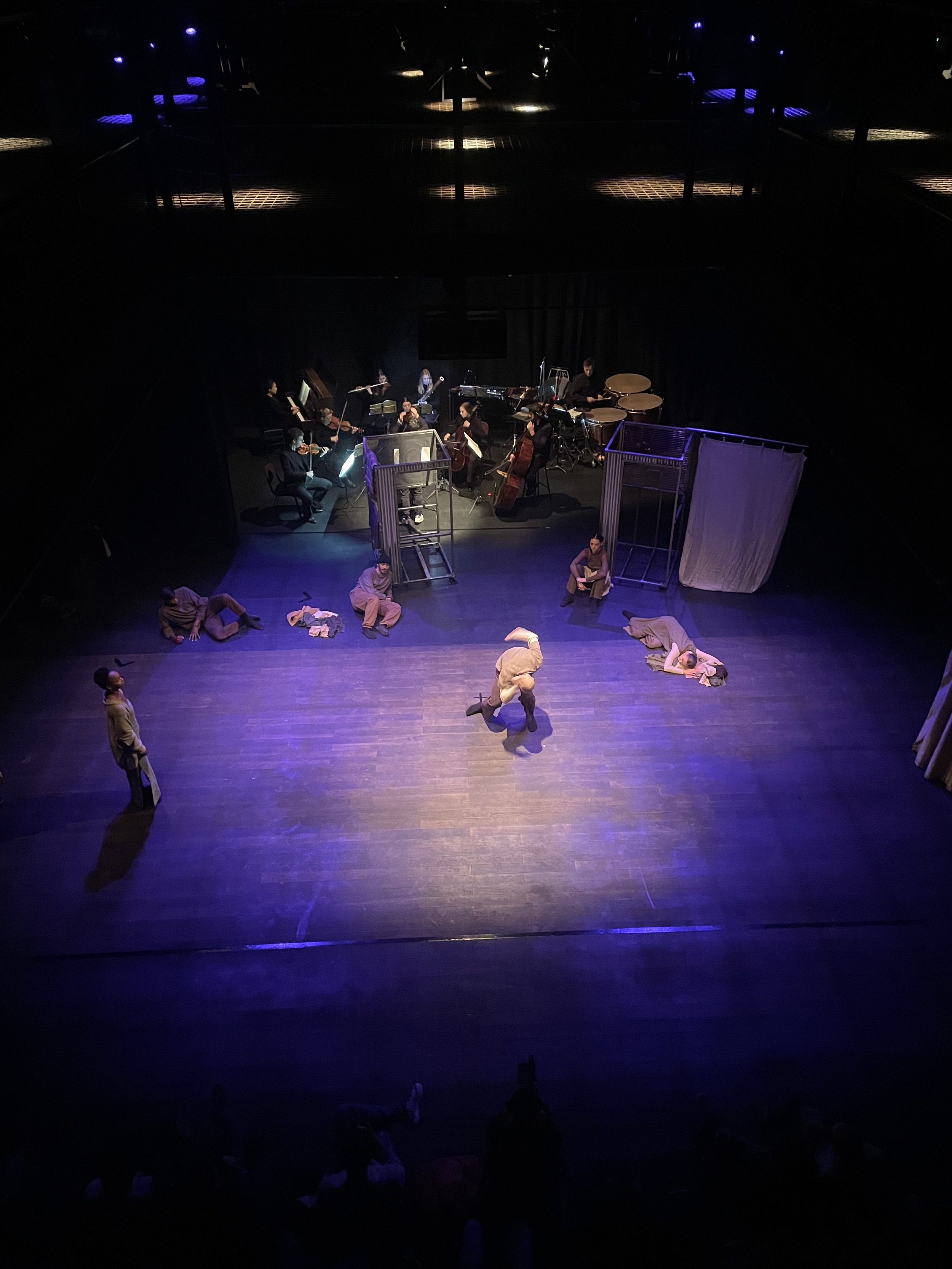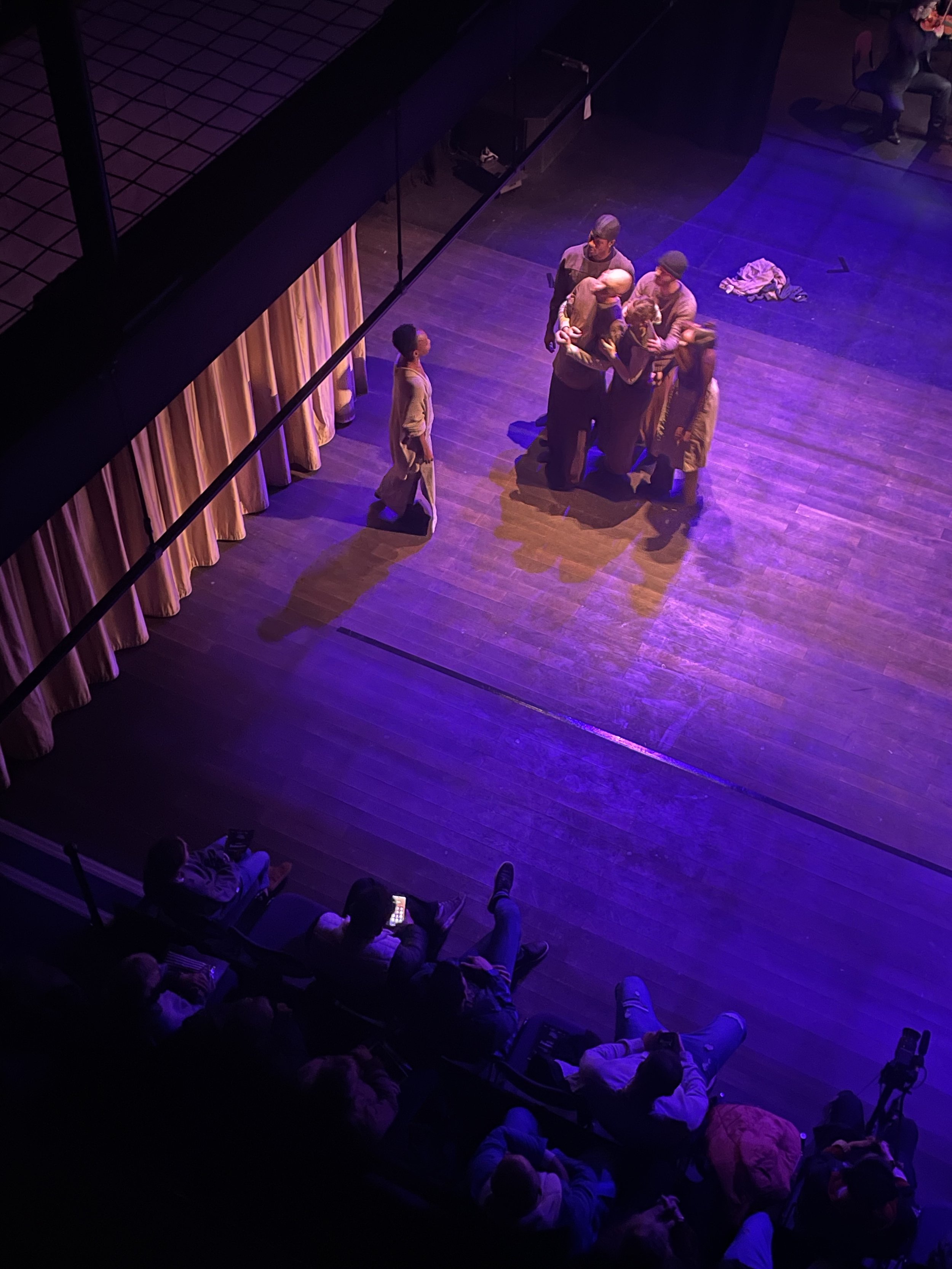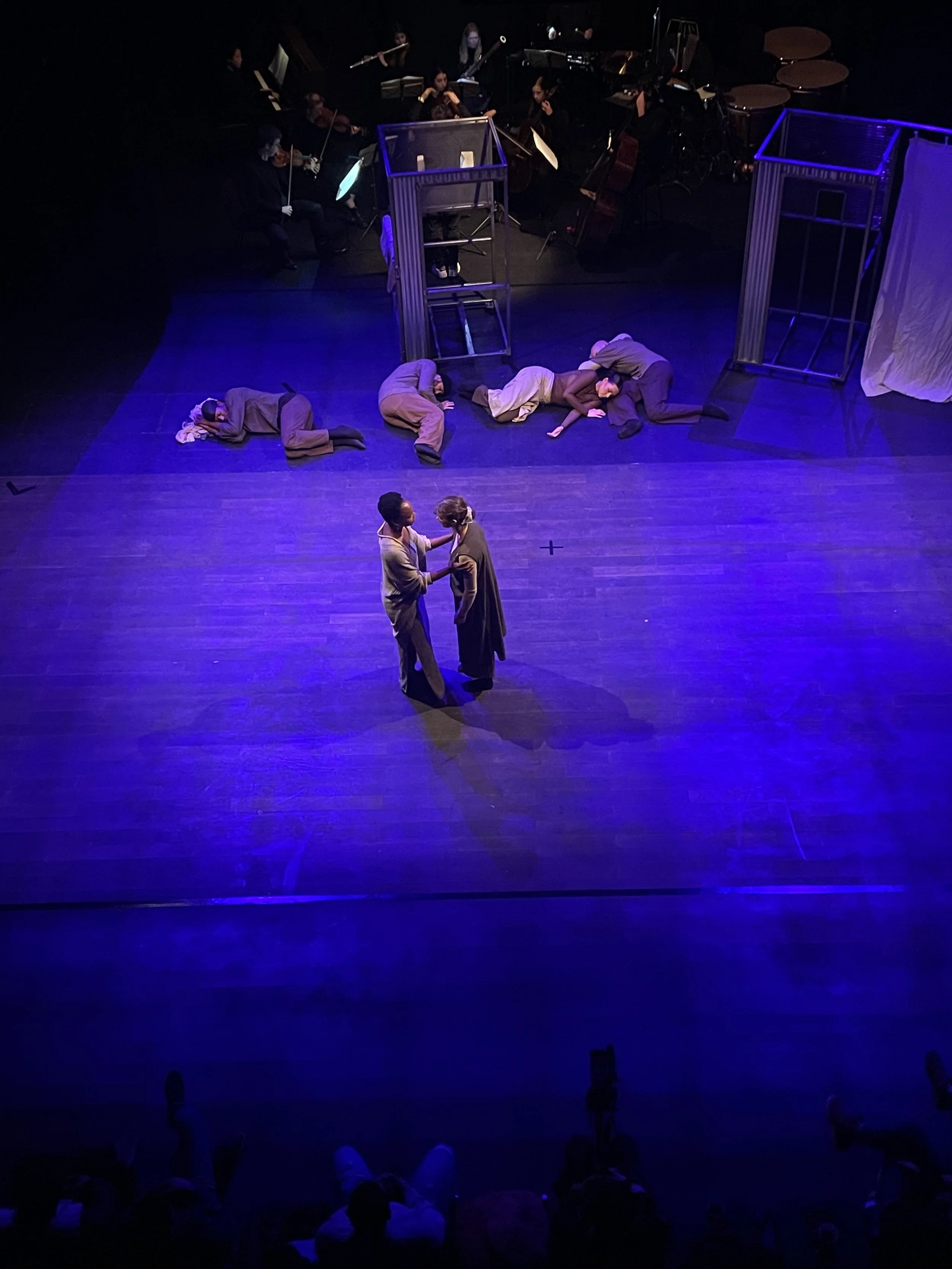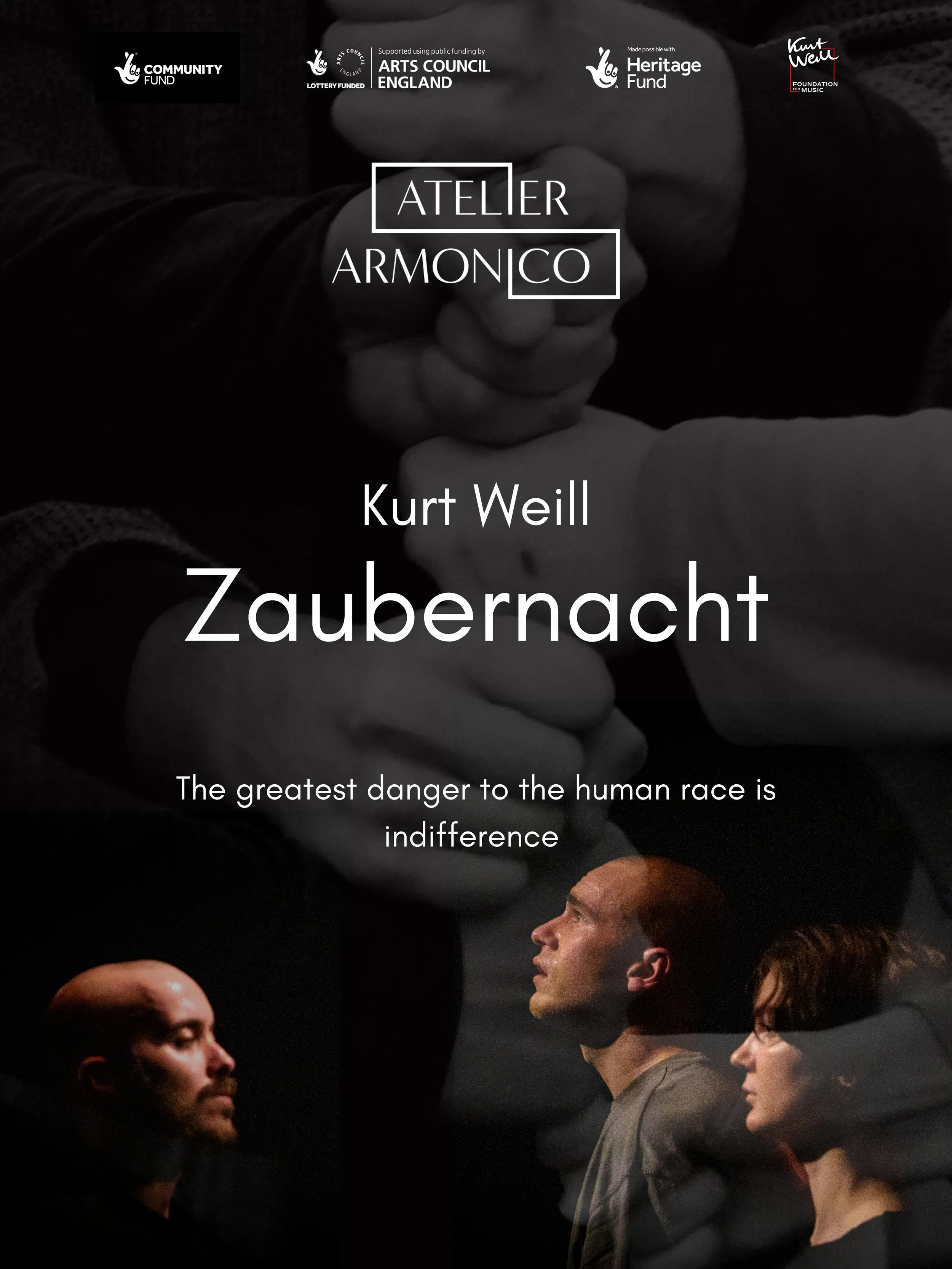Zaubernacht
“THE GREATEST DANGER TO THE HUMAN RACE IS INDIFFERENCE”
— Kurt Weill
Atelier Armonico's interpretation of Weill's Zaubernacht tells a poignant tale, suspended between dream and reality, of a group of young people who find solace in their imagination to escape the harsh realities of their circumstances. Amidst the challenges they face, they embark on a magical journey, using their creativity and fantasy as a source of hope and resilience in the face of adversity. Composed following the horrors of the Great War and the Spanish Flu Pandemic, Atelier Armonico’s production places the piece in a context where wars continue and the world struggles to recover from another pandemic. But out of this modern-day trauma, despite the terrible pain and hardship, new things can yet again be created.
We have collaborated with UK asylum seekers, particularly from Ukraine, Iran, Syria, Sudan, Iraq, Albania, Moldova, Nigeria, Ghana, fleeing from persecution where human rights are threatened. The production keeps Weill’s children’s fantasy-journey but places it in a contemporary context, perpetuating Weill’s concern for social justice.
“What the immigrants of today are bringing to this country is not more and not less than what the immigrants from earlier persecutions have brought here. All they ever could bring was the work of their hands and the work of their heads. That’s what they offer to this country and what the people of this country are so ready to accept.”
KURT WEILL
Choreographers: Alice Oakley-Jones, Jonny Vieco
Conductor: Davide Levi
Set designer: Jack Hanson
Costumes and set design assistant: Amy Connolly
Soprano: Yolisa Ngwexana
Dancers: Sophie Chinner, Megan Rose Pay, Sasha Mahfouz Shadid, Ezzy Nzewi, Dominic Simpson
This production is funded in part by the Kurt Weill Foundation for Music, Inc., New York, NY
Press contact
Torsten Højer
The Fifth Estate Ltd
torsten@thefifthestate.co.uk
+44 7876 237 877

